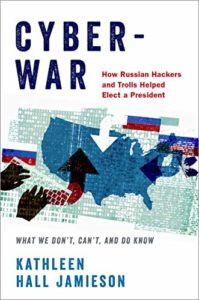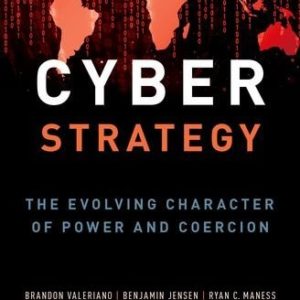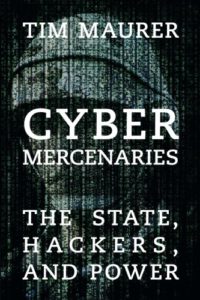 A set of measures to defend digital democracies against disinformation campaigns, hackers and cyberattacks is urgently required, according to Hacks, leaks and disruptions: Russian cyber strategies, a new report from the Paris-based European Union Institute for Security Studies.
A set of measures to defend digital democracies against disinformation campaigns, hackers and cyberattacks is urgently required, according to Hacks, leaks and disruptions: Russian cyber strategies, a new report from the Paris-based European Union Institute for Security Studies.
The experience of the United States and several European countries with alleged Russian interference has elevated the protection of democratic institutions and processes into an international issue, note analysts Nicu Popescu and Stanislav Secrieru. While disinformation often relies on the information obtained through hacking databases, email accounts or other information sources, it is the weaponization of such information for the purpose of large-scale disinformation that poses a danger to free and fair electoral processes, they write in a chapter on Russia – from digital outlier to great cyberpower:
In that context, the 2019 European Parliament elections will be an important test case. A frequently low degree of participation and the local nature of the European election campaigns makes them more fragmented, which in turn allows for more targeted, contextualised, and convincing disinformation. A low turnout-low investment-high stakes combination potentially makes the 2019 elections an attractive target: their outcome will influence the EU’s institutional set-up and might change the future direction of the Union’s crucial foreign and security policy decisions – including the EU’s position on bilateral relations with Russia.
 “Russia is almost unabashed about its integration of cyber intrusions and strategic communications,” they add. “Neither China, the US nor other cyber powers integrate to such an extent information stolen via cyber means into targeted information campaigns that seek to influence elites or the wider public in other countries, especially at election time.”
“Russia is almost unabashed about its integration of cyber intrusions and strategic communications,” they add. “Neither China, the US nor other cyber powers integrate to such an extent information stolen via cyber means into targeted information campaigns that seek to influence elites or the wider public in other countries, especially at election time.”
Attacks against digital democracies Elections lie at the heart of the democratic political process, analyst Jarno Limnell asserts in a chapter on Russian cyber activities in the EU.
“They are seen as nothing less than democracy in practice. The risk of cyber-enabled meddling in European elections is real, and, when assessing the hybrid threat, elections have emerged as key targets,” he adds. RTWT
Students at Indiana University’s Observatory on Social Media (OSoMe) have launched
a new tool – Bot Electioneering Volume (BEV) – to explore electoral activity by likely bots: How loud they are and what they tweet. Give it a spin.
 The cybersecurity of elections is now a critical component of election planning, says the International Foundation of Electoral Systems (IFES). Since the 2016 U.S. presidential election, there is greater awareness of how cyber threats can affect the administration of elections at all levels. From voter registration data to results transmission, elections are vulnerable to external threats and manipulation. Safeguarding the integrity of elections requires a high level of commitment, both political and financial, for the implementation of measures that ensure that election processes and results remain credible.
The cybersecurity of elections is now a critical component of election planning, says the International Foundation of Electoral Systems (IFES). Since the 2016 U.S. presidential election, there is greater awareness of how cyber threats can affect the administration of elections at all levels. From voter registration data to results transmission, elections are vulnerable to external threats and manipulation. Safeguarding the integrity of elections requires a high level of commitment, both political and financial, for the implementation of measures that ensure that election processes and results remain credible.
Please join IFES for a discussion about the state of cybersecurity of elections around the world and how election officials can strengthen and protect this critical infrastructure. During the discussion, IFES will unveil a new Holistic Exposure and Adaptation Testing (HEAT) methodology that aims to secure automated and digitalized electoral processes against unanticipated threats, illicit incursions, system failures, or unfounded legal challenges.
 Moderator:
Moderator:
Michael Svetlik, Vice President of Programs, IFES
Speakers:
- Tammy Patrick, Senior Advisor for the Elections Program, Democracy Fund
- Tom Rogers, Commissioner, Australian Electoral Commission
- Chia-hung Tsai, Commissioner, Central Electoral Commission of Taiwan
- Lorenzo Córdova Vianello, Chairman, National Electoral Institute of Mexico
- Katherine Ellena, Legal Advisor, IFES
Closing Remarks:
Anthony Banbury, President and CEO (as of November 1), IFES
| When: Tuesday, November 6 9:00 a.m.-11:00 a.m. EST Breakfast will be servedLocation National Press Club Ballroom 529 14th St NW 13th Floor Washington, DC 20045 |
|
|
IFES is committed to enfranchising citizens through innovative uses of technology that maximize impact through proper application. Learn more about IFES’ work in electoral technology.







